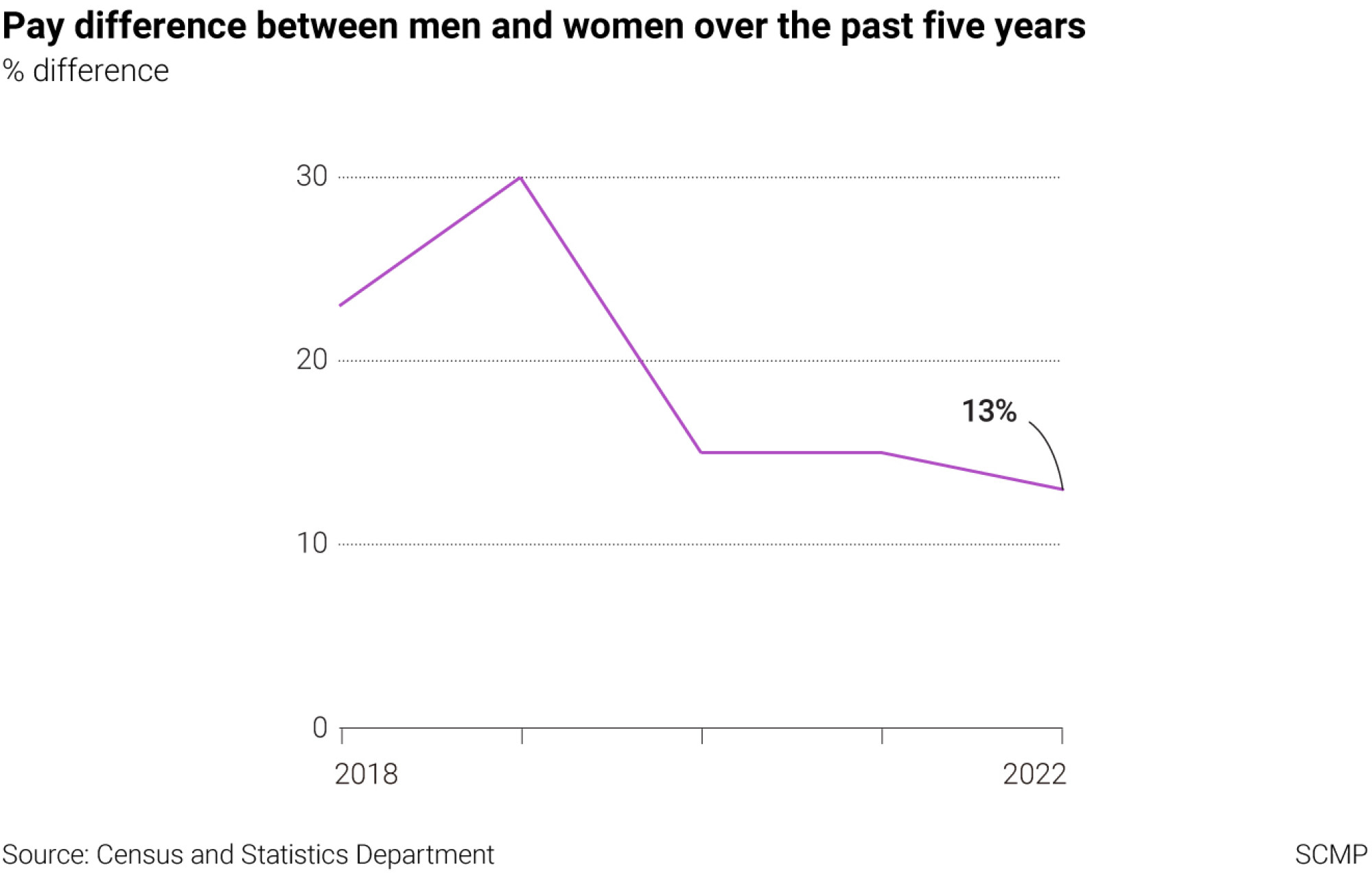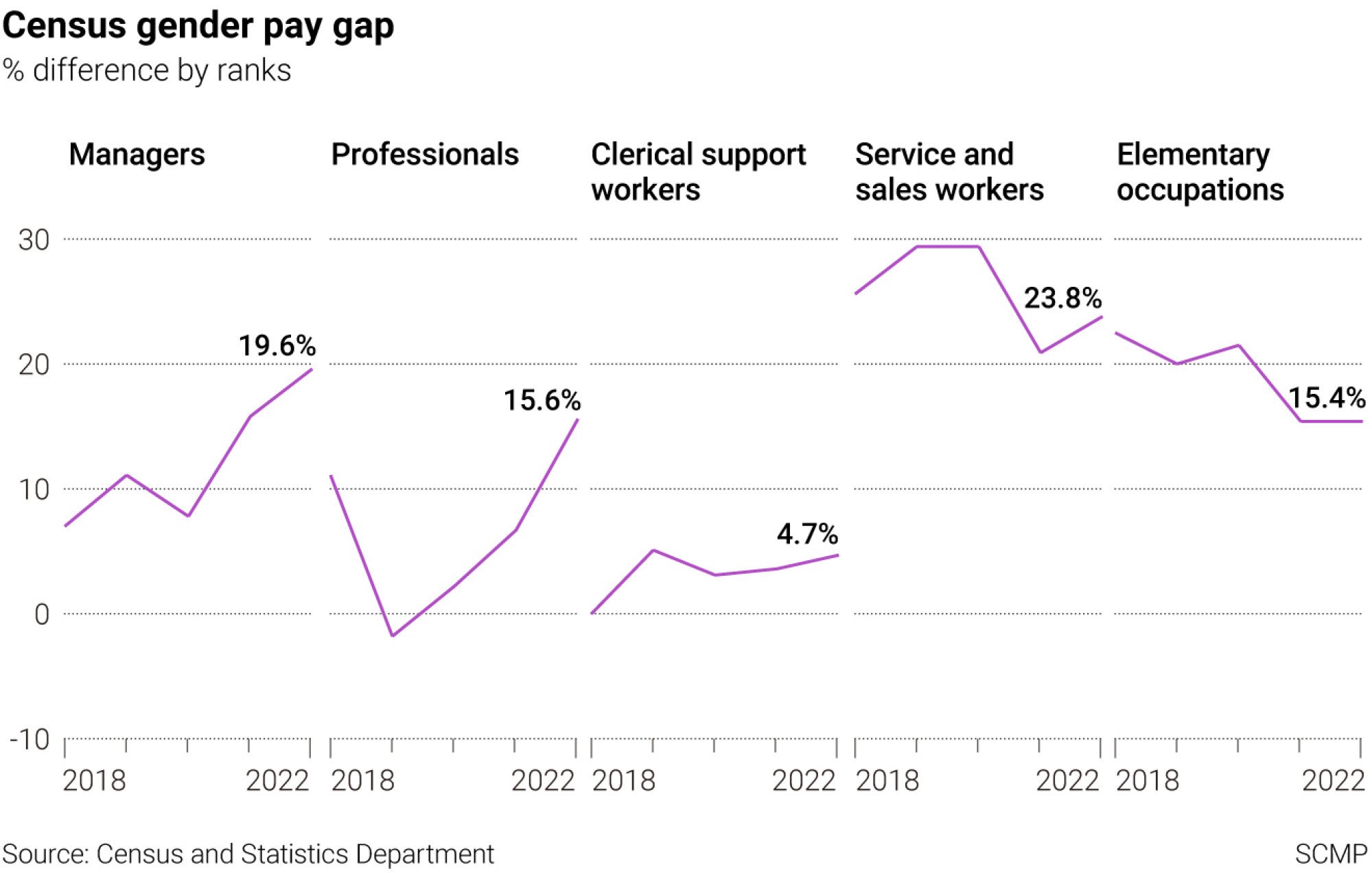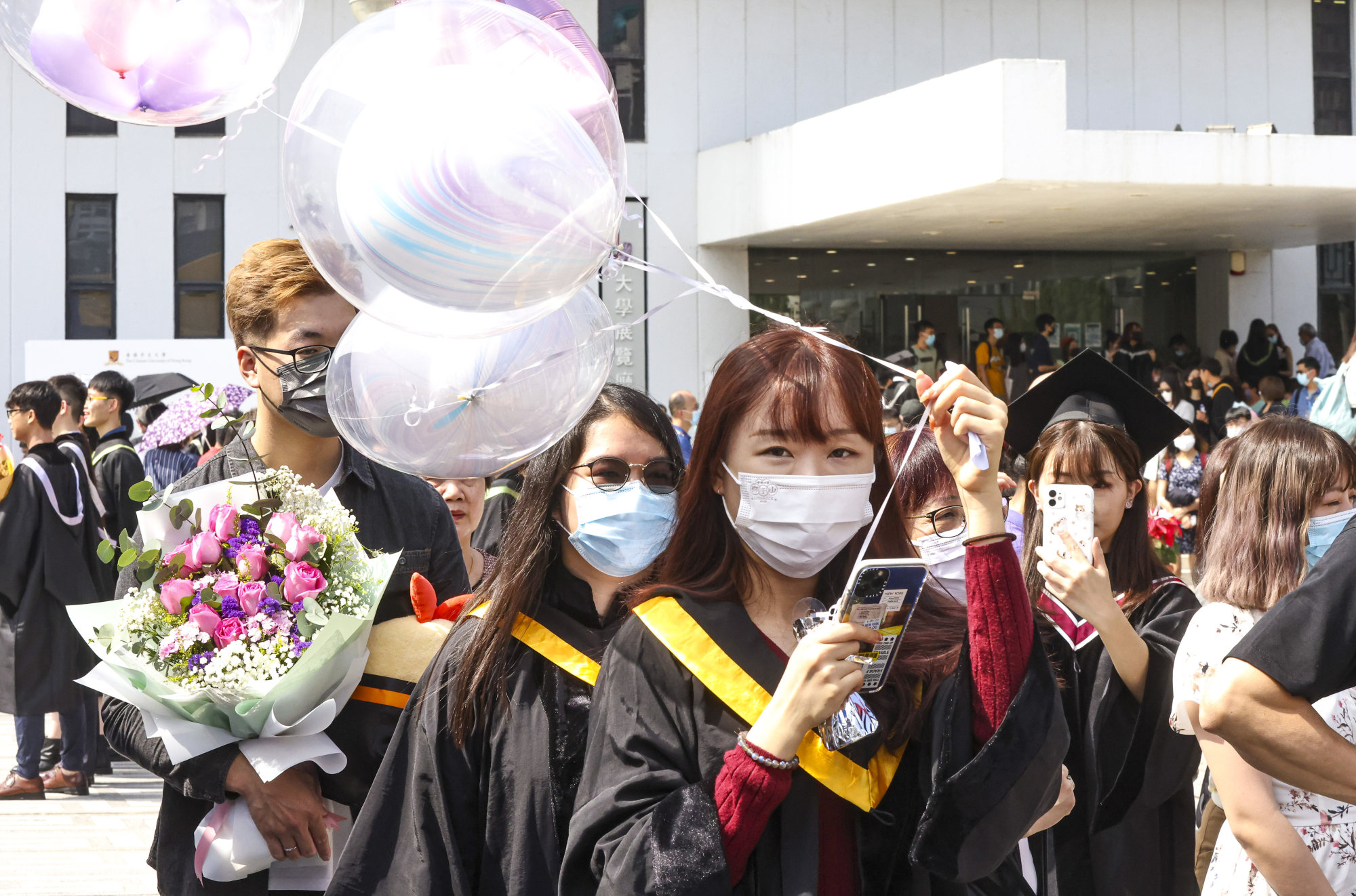
Workplace disparity widens: women holding top jobs in Hong Kong paid nearly fifth less than men
- Women in managerial positions earned HK$9,800 less each month than men at the same level, data shows
- It is discrimination, experts say, although some women forgo promotion at work to care for family
Women holding top jobs in Hong Kong were not only paid considerably less than their male counterparts over the past five years, but the gap also widened, according to official data.
At the same time, the picture improved for the rest of the workforce, with the difference narrowing overall between what women and men were paid since 2017.
Women in managerial positions earned HK$9,800 (US$1,248) less each month than men of the same rank – nearly a fifth less – for the three months from April to June, according to the latest general household survey by the Census and Statistics Department.

That 19.6 per cent gap widened from 15.8 per cent last year and 6.98 per cent five years ago.
Among professionals, women earned 15.6 per cent less than men, worse than the 11.1 per cent gap in 2018.
Women in clerical jobs received HK$800 less than men – or 4.7 per cent – and this was also a deterioration as there was no gap between them in 2018.
The gender wage gap also widened with age, going from 2.14 per cent among those aged 15 to 24 to 28 per cent for those aged 45 to 54.

Overall however, the gender pay gap narrowed from 22.5 per cent in 2018 to 13 per cent this year. The data excludes foreign domestic workers, most of whom are women with a minimum wage of HK$4,630 a month.
Alexa Chow Yee-ping, managing director of AMAC Human Resources Consultants, said women workers fared worse as the economy suffered from the social unrest caused by anti-government protests in 2019 and the Covid-19 pandemic.
“Women are relatively less privileged than men,” she said. “Lay-offs also target women disproportionately due to gender discrimination. For senior positions especially, some employers think it’s better to have men.”
Gender equality at work: how do Hong Kong, Singapore and others compare?
Chinese University economics Professor Terence Chong Tai-leung said some women opted out of progressing in their careers to have more time to care for the family, which was comparatively rare among men.
“Some would turn down a promotion after weighing the salary increase and responsibilities,” he said.
But he noted that women could possess attributes for success in senior positions, as such roles required people with strong communication and language skills.
Gender pay gap for women widens with age in Hong Kong
Elaine Cheung, in her 40s, a senior human resources manager at a statutory body, said favouritism could contribute to the pay disparity, especially in self-owned business environments without institutional oversight.
“I haven’t come across gender-based preferences in salary decisions before, but favouritism definitely exists in the workplace,” she said. “However, it’s hard for HR managers to argue with supervisors. HR officers can only warn managers of their decision’s impact on the team and how pay differences can be adjusted accordingly.”
Cheung, who has worked for multinational corporations and statutory bodies, said self-owned businesses had more leeway in making salary decisions and this could result in a gender pay gap as such companies lacked institutional benchmarks or board oversight.

Despite the latest data, HR consultant Chow believed all was not bleak for women in the Hong Kong workforce.
With more girls being better educated and going to university, she expected that the younger generation would not face the same pay disparity as they progressed in their careers.
In the last academic year, women accounted for 53.6 per cent of the total undergraduate enrolment at the city’s publicly funded universities.
“We are having less gender bias. Women’s power has also lifted up,” she said. “For the next generation, the gender gap will not be repeated.”


